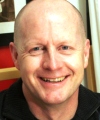Process of Software Development Track
 Jim Newkirk Track Chair |
The goal of the Process of Software Development Track is to shed light on real-world challenges, share success and horror stories, and describe key practices for developing and maintaining software. This track will stress the practical applications and implications of evolving software practices for team members. If you are a developer, tester, business analyst, coach, manager, or anyone else with a stake in delivering high-quality software, you will find practical information that you will be able to take back to your workplace and use immediately.
Topics we intend to cover in this track include:
|
Breakout Sessions
 Richard Seroter Sr. Product Manager CenturyLink Cloud |
|
Week in the Life: How one Org’s People, Processes and Technology Deliver Services Effectively
|
|
 Darren Davis Director Software Engineering Providence Health & Services |
|
The Secret History of Kanban
|
|
 Peter Provost Principal Group Program Manager Microsoft |
|
“I Think” vs “I Know” – Why You Need Customer Analytics
|
|
 Martin Hinshelwood Consultant naked ALM Consulting |
|
Big Scrum: All You Need and It’s Not Enough
Large scale agility can be found in exploiting Scrum’s simplicity while emerging and sustaining technical excellence. Something that sounds so easy shouldn't be so hard, and for some it isn't. This session highlights successes in growing large scale agility using Big Scrum while maintaining technical excellence to deliver value faster. |
|
 Mitch lacey Agile Practitioner & Trainer Mitch Lacey & Associates |
|
Certification and Professional Standards
Come listen to Mitch Lacey, alphabet soup guy, talk about different certifications, how he has seen them valued (and devalued) across the globe and why any of this stuff really matters, because maybe it doesn’t. |
|
 Chris Jee Engineering Manager Etsy |
|
More than Code: How Etsy Engineers Drive Product Changes
In this talk, we will cover some of the tactics employed at Etsy, from creating an understanding of the business, through idea evaluation, launching and embracing and accepting failure. Related Resources: GeekWire interview with Mike Brittain, Engineering Director at Etsy ALM Forum 2014 Plenary: Mike Brittain - Principles and Practices of Continuous Deployment |
|
 Aaron Bjork Principal Group Program Manager Microsoft |
|
Ten Reasons Your Agile Team Will Fail
|
|
 Dan North Industry Legend & Author |
|
Why Agile Doesn't Scale (and What You Can Do about It)
|
|
 Robert Pieper Sr. Consultant Centare |
|
Your Agile Team Needs a Therapist
In this presentation we will discuss ideas around team forming, building, and maintaining. We will address trust and trustworthiness. We will address conflict mining to leverage differing ideas for the common good. If you are a ScrumMaster, team lead, manager, director, or even an agile team member, you may be dealing with these issues and might start to feel your role is more like that of a therapist. Regardless of your role on the team or organization, there is always something to learn about how to work with others on a team to get better and to keep the focus on delivering high-quality, high-value software and remain responsive to change. |
|
 Chris Sells Product Manager |
|
Trends in Cross-Platform Mobile Apps
|
|
 Kate Matsudaira Founder & CEO popforms |
|
Where Does Success Come From?
In today’s new generation of tech company, leadership and responsibility is more distributed than ever before. People are expected to get the job done, without someone watching or directing every move all along the way. Teams are focused on results, not roles. So as leaders in increasingly flat organizations without the traditional hierarchy and process of the past, how can we make sure we are still leading effectively? What’s the balance between too hands-on and too hands-off? Your job as a leader is to let your team do what they’re good at, but you can only give over autonomy once you’ve given them the tools they need and trust that they can execute without you watching over their shoulder. The talk will cover strategies to help you build trust with your team and set up the right guard rails to loosen your grip on the steering wheel and give people what they want in a leader. |
|
 Skip Angel Agile Coach Rally Software |
|
Build the Right Thing: Build the Features Customers Actually Want that Return Value
With a Lean and agile mindset, you need to focus strategic planning where it matters most: limiting waste, increasing economic value, planning fewer and more valuable features in shorter timeframes, and leveraging frequent feedback loops to delight stakeholders faster. In this session we’ll take you beyond agile processes and ceremonies to agile at the business level, so your teams can do the work that creates the most value for your business. You’ll learn how to organize around value and come away understanding:
|
|
 Matt Stine Technical Product Manager Pivotal |
|
To Microservices and Beyond
|
|







